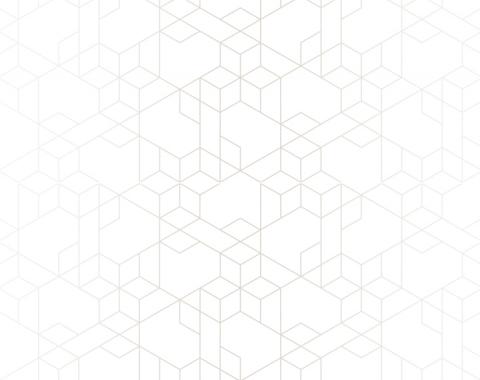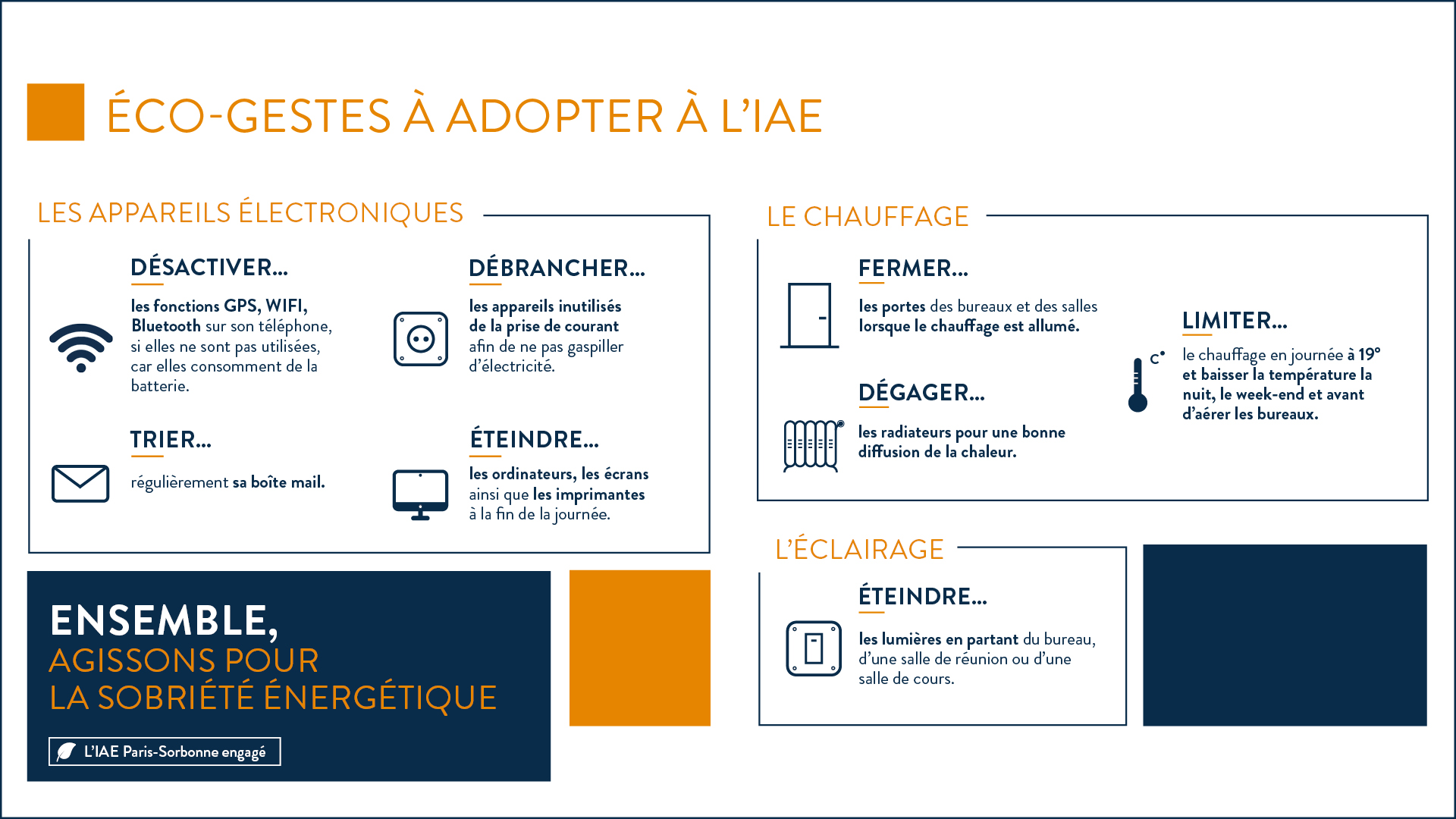

Promoting the ecological transition
Since the establishment's creation, echoing its values and DNA, the Sorbonne Business School has invested, committed and acted in favor of society and the world around us. More than ever, we are committed to being a benchmark school in terms of ecological transition. We are moving forward step by step, with and for our students, through concrete actions.

For several years, the Sorbonne Business School has been committed to an environmental approach with the aim of sustainably improving resource and waste management, as well as developing a more ambitious policy in terms of responsible purchasing or transport. This dynamic is actively supported by a broad awareness-raising campaign among its community and beyond. In 2023, our establishment has embarked on an SD&RS labeling process.
- Reducing / offsetting greenhouse gas emissions
-
Development of tree-planting projects
The Sorbonne Business School is the first university to have implemented carbon offset projects certified by the Label Bas Carbone (LBC) promoted by the Ministry of Ecological Transition and Territorial Cohesion.
In fact, since the 2019-2020 academic year, we regularly offset the carbon footprint of emissions linked to our missions abroad. Thus, the establishment has funded three afforestation and reforestation projects in Gironde designed by CNPF in 2020 and a similar scheme in Vendée in 2021. Two new projects are in the process of being certified in the Hauts-de-France region.
While carbon offsetting does not replace the need to reduce one's overall greenhouse gas emissions, it is a step that accelerates widespread awareness of its impact and the development of an alternative operating model.

Other actions contributing to this goal include:
- the implementation of a travel policy encouraging preference for rail when destinations are served;
- the development of distance learning for international programs to reduce transport;
- encouraging staff to use bicycles to commute to and from work (raising awareness of soft mobility, introduction of mobility package);
- the abandonment of the establishment's delivery vehicle in favor of an eco-responsible shopping service. - Sustainable resource management
-
The Sorbonne Business School has proceeded to change the fleet of beverage dispensers to offer machines with cup detector and coffee grounds recycling, and plans to replace those for food to offer organic produce and fruit at certain times of the year.
In the same spirit, to replace plastic carboys, water fountains connected to mains water without maintaining heat or permanent refrigeration have been installed on the premises, saving energy and reducing waste for pure, filtered water at the desired temperature.
In addition, various amenities have been carried out: changing the lighting to LED; motion detectors for the lighting; installation of push taps; automatic watering to perpetuate and reinforce the vegetation on the terrace.
- Waste reduction and sorting
-
To optimize waste management, Sorbonne Business School is committed to a long-term approach to recycling and eliminating plastic: paper sorting and recycling; elimination of single-use plastics (glasses, plates...); recycling of digital waste; installation of connected water fountains to replace plastic bottles; implementation of selective collection and sorting in a complete recycling approach by relying on a company applying the RQTH (recognition of disabled worker status)
.
- A responsible purchasing policy
-
The Sorbonne Business School implements a transversal purchasing policy with responsible purchasing clauses. Thus, the latest renewed contracts take into account criteria in favor of sustainable development (catering contract, premises cleaning contract).
To instill a shared culture of responsible management, Sorbonne Business School is actively raising awareness among its entire community, students and staff alike.
In addition to a transversal dissemination of societal issues within its teaching in all training programs, the environmental transition is the subject of specific actions aimed at students. As an example, since the start of the 2020 academic year, Sorbonne Business School has been experimenting with the Rentrée Climat program via the Fresque du climat, a collaborative workshop based on the IPCC report. In just 3 hours, this educational workshop based on collective intelligence makes it easy to understand the complexity of climate change and to become aware of the urgency of taking action. The aim is to train more staff internally, in order to generalize the approach.
Some schemes, such as the 2tonnes workshop or the Ma petite planète challenge are at this stage being tested in several training courses.
In addition, some programs more specifically integrate sustainable development issues, such as:
- the Master's degree in Human Resources, now with a strong CSR focus, sets out to promote socially responsible HR management systems. This program is offered both as a sandwich course and in continuing education.
- The Sorbonne Business School is also paying increasing attention to themes such as risk and security, as well as data management. This has recently resulted in the introduction of specific training courses such as the Master en alternance Manager Qualité-Sécurité-Environnement in partnership with ICP, or the Executive MBA Management and Data Science, which will welcome its first class in spring 2024.
This awareness drive also concerns the administrative staff and teaching team, who regularly benefit from conferences (digital impact on climate disruption, sustainable food, mobility in tune with the living environment, biodiversity), collaborative workshops (zero waste, climate fresco, biodiversity risk, digital-fresque) or cooperative-challenges like Ma petite Planète.
Thus sensitized, the employees of Sorbonne Business School share a common culture in favor of the environmental transition: some contribute directly to its dissemination by animating climate frescoes offered to students, after having been trained by speakers approved by the association.
In addition, an information campaign on eco-gestures in favor of energy sobriety was recently deployed within the IAE premises.

Beyond our community, our challenge is also to raise awareness widely and take action to contribute to tomorrow's world by taking into account major societal and environmental issues.
To this end, our research activity, driven by our LAB Sorbonne Business School laboratory and our 7 chairs, contributes to the evolution of society and practices by enriching our programs with new thinking and accompanying organizations in their evolutions and transformations.
Sustainable development is thus the subject of regular publications by Sorbonne Business School's teacher-researchers, each integrating this dimension into his or her specialist field, through academic productions or speaking engagements via The Conversation, FNEGE Media or Xerfi Canal. Since 2017, our school has counted some fifty academic productions on this subject.
In addition, our teacher-researchers recently contributed to the 4th book in the Petits Manuels de la Grande Transition collection focusing on management sciences, coordinated by Nathalie Lallemand-Stempak, Senior Lecturer, Deputy Director in charge of societal issues, and Philippe Eynaud, Professor, CSR project manager. The little handbook "Vers une autre gestion" to be published in spring 2022 is intended to serve as a support for changing teaching and making it compatible with the imperatives of the ecological and social transition. It is part of a collection launched by the Campus de la Transition (FORTES collective).